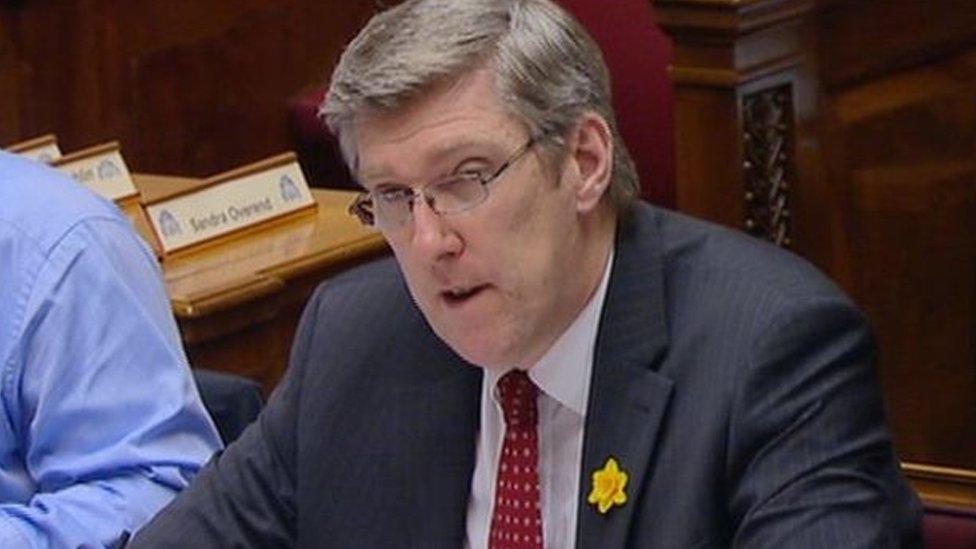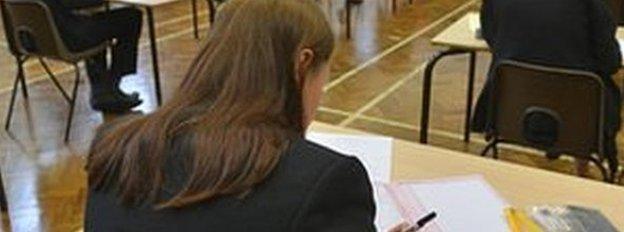GCSE grades in Northern Ireland will not change, education minister decides
- Published

John O'Dowd said the decision he had made would present challenges for awarding bodies
Education Minister John O'Dowd has decided there will be no change in GCSE grades in Northern Ireland.
He said that all exam boards operating in Northern Ireland must give their results using the letters A* to G.
In 2017, English examining boards will give their results in the form of numbers, where nine is the highest grade and one the lowest.
Around one in four GCSEs in NI is studied through an English examining board.
There is currently an 'open market' for GCSEs where schools can choose which examining board to use.
If schools in Northern Ireland want to continue operating through English boards like AQA and OCR, those boards will have to agree to operate a separate alphabetic grading system for Northern Ireland.
There is no indication yet that they will agree to do so.
The local examining body, CCEA, will continue to award GCSEs from A* to G only.
'Best interests'
Mr O'Dowd said the decision he had made would present "challenges" for awarding bodies.

The majority of exams in Northern Ireland are set and marked by the local CCEA board
"I believe that it will be in the best interests of learners here to continue with the established practice of awarding using letters, and I believe we must avoid unnecessary complexity as far as possible," he told the assembly.
"I appreciate that there is anxiety around the perceived risk to our young people going out into the world with a GCSE certificate that is anything other than a string of numbers like their English counterparts.
"I have confidence in our education system, and I have confidence in the hard work and attainment of our young people."
However, the Association of School and College Leaders (ASCL), which represents many grammar school principals, criticised the minister's decision.
ASCL President Stephen Black said that Mr O'Dowd was relying on the English examining boards following his plans.
"He is saying we can have an open market for GCSE qualifications, but he is totally reliant on the English boards accepting they will have different grading systems for England and Northern Ireland," he said.
"There's no precedent for this, so there's a real danger that we might lose a raft of qualifications which our young people are currently able to study for."
However, the chief executive of the Council for Catholic Maintained Schools, Jim Clarke, backed the minister.
"It's a statement that our education system is for Northern Ireland," he said, "and meets the needs of young people, our higher education providers and our employers".
- Published23 September 2015
